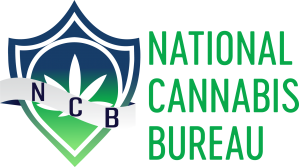It’s never a happy ending if you’re a Columbian drug smuggler and your boat breaks down. The feds seized 223 pounds of cocaine and arrested two people headed toward Long Beach after their ship became disabled, FOX11 Los Angeles reports.
The panga-style vessel, an open and outboard-powered fishing boat commonly used in the developing world, broke down on the 4th of July off the Colombia coast, and it’s far from the first boat filled with cocaine to do so. U.S. pressure on the Colombian government to crack down on the cocaine trade has epically failed. Coke production in Colombia rose in 2021 to its highest levels in two decades of monitoring, according to the United Nations Office on Drugs and Crime (UNODC). Reuters reports that the areas sown with the coca plant went up 43% to 204,000 hectares (500,000 acres).
Needless to say, the two folks aboard the ship didn’t have their cocaine-dusted 4th of July American dream. They flagged down a good Samaritan on their way to Long Beach, according to a press release from the U.S. Coast Guard Sector Los Angeles-Long Beach. Their saviors towed their broken-down boat — but snitched. The rescuers (although the smugglers would likely not use that word) perhaps didn’t want to get in trouble when they sensed the boat was carrying more than people and contacted the Coast Guard, alerting them that they suspected the panga boat had drugs on board.
Their suspicions were correct.
The Coast Guard searched the boat and found 223 pounds of cocaine hidden in a false bottom of the ship. U.S. Customs and Border Protection officers detained the two people onboard and seized the blow and the boat.
“This operation exemplifies the outstanding interagency collaboration with the U.S. Coast Guard and CBP,” said Lt. Commander Keith Robinson, chief of law enforcement at Sector Los Angeles-Long Beach.
Columbia’s leftist President, Gustavo Petro, isn’t in favor of illegal drug smuggling. But he has made some interesting points about the environmental effects of the war on drugs, something too many U.S. cannabis growers who have had their crops burned know about. During his first speech at the General Assembly in 2022, Petro said that the world’s addiction to money, oil, and carbon is destroying the Colombian rainforest through what he describes as a “hypocritical” war against drugs, the UN reports.
“The forest that should be saved is at the same time being destroyed. To destroy the coca plant, they throw poisons such as glyphosate that drips into our waters, they arrest their cultivators and then imprison them,” he said. “The jungle is burning, gentlemen, while you wage war and play with it. The jungle, the climatic pillar of the world, disappears with all its life. The great sponge that absorbs the planetary CO2 evaporates. The jungle is our savior, but it is seen in my country as the enemy to defeat, as a weed to be extinguished,” Petro continued.
Rather than blame the plant, Petro has suggested expanding voluntary crop substitution programs and regulating narcotics by focusing on gang leadership while increasing social funding in coca plant production areas. He argues that the world’s dependence on oil and the adverse climate effects of the failed war on drugs cause more deaths than drugs themselves.
“What is more poisonous for humanity, cocaine, coal or oil? The opinion of power has ordered that cocaine is poison and must be persecuted, while it only causes minimal deaths from overdoses…but instead, coal and oil must be protected, even when it can extinguish all humanity,” he also said in his General Assembly speech.
Petro’s point is best understood once you know that the war on drugs fueled Columbia’s mess of a civil war — and there’s a report to prove it. The study was conducted by a commission formed as part of the 2016 peace deal with the leftist rebels of the Revolutionary Armed Forces of Colombia (Farc). The deal ended five decades of civil war and found that “the union of the interests of United States and Colombia led to the construction of Plan Colombia” (a multibillion-dollar military aid program that began in 2000), “which merged together the counter-insurgency, anti-terrorist and anti-narcotics programmes with the war against narco-terrorism,” The Guardian reports.
The report also found a “substantial change in drug policy” is needed while calling out the U.S. — who funded Colombia’s armed forces during the war.
And meanwhile, back home in America, cocaine remains only a Schedule II drug, while cannabis continues to clock in at a Schedule I.
The post Coast Guard Seizes 223 Pounds of Cocaine From Boat Headed Towards Long Beach appeared first on High Times.

